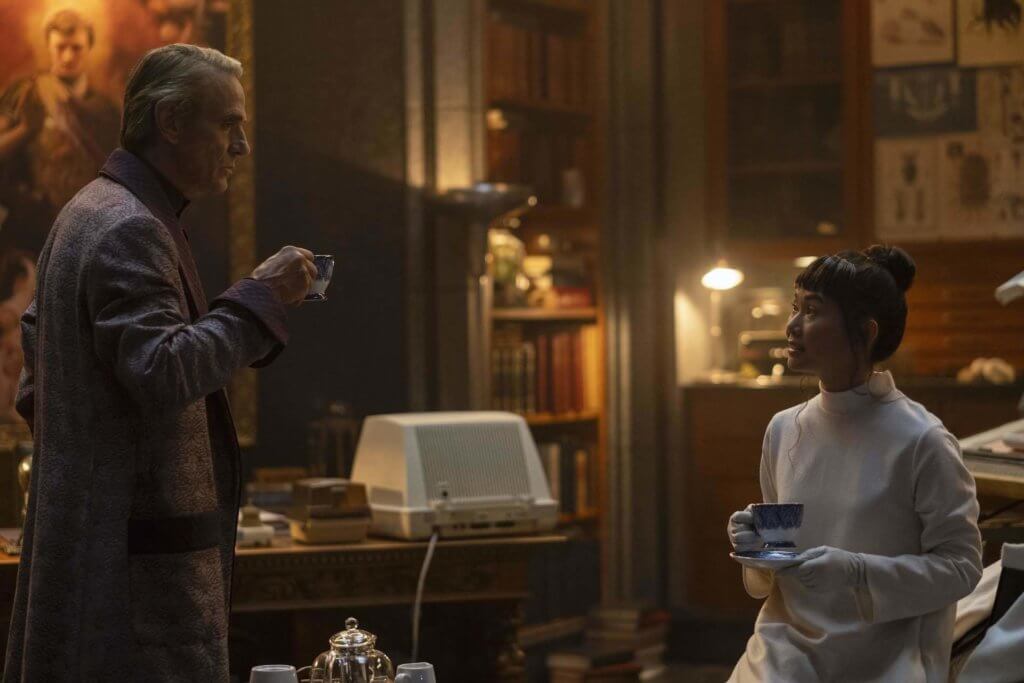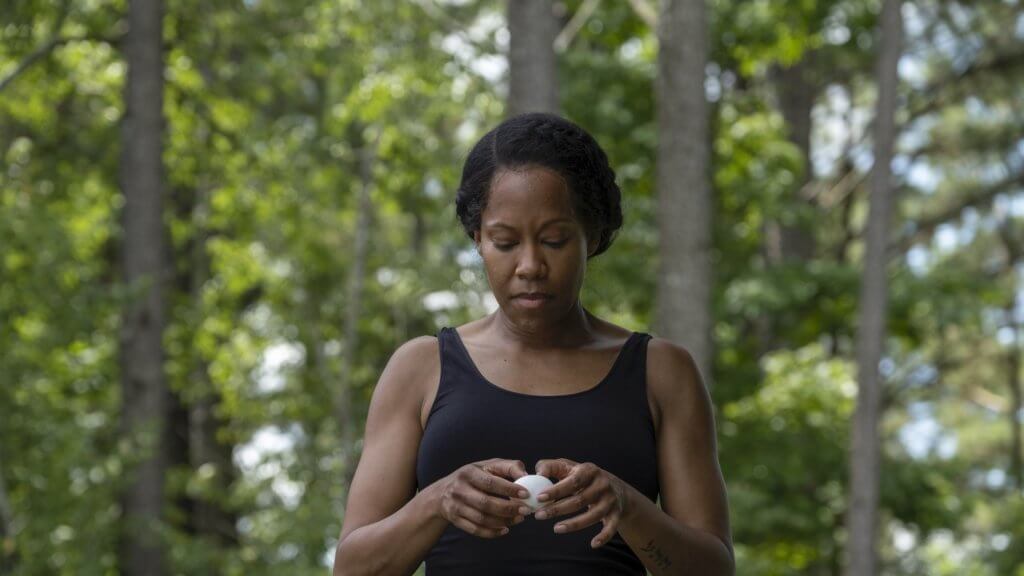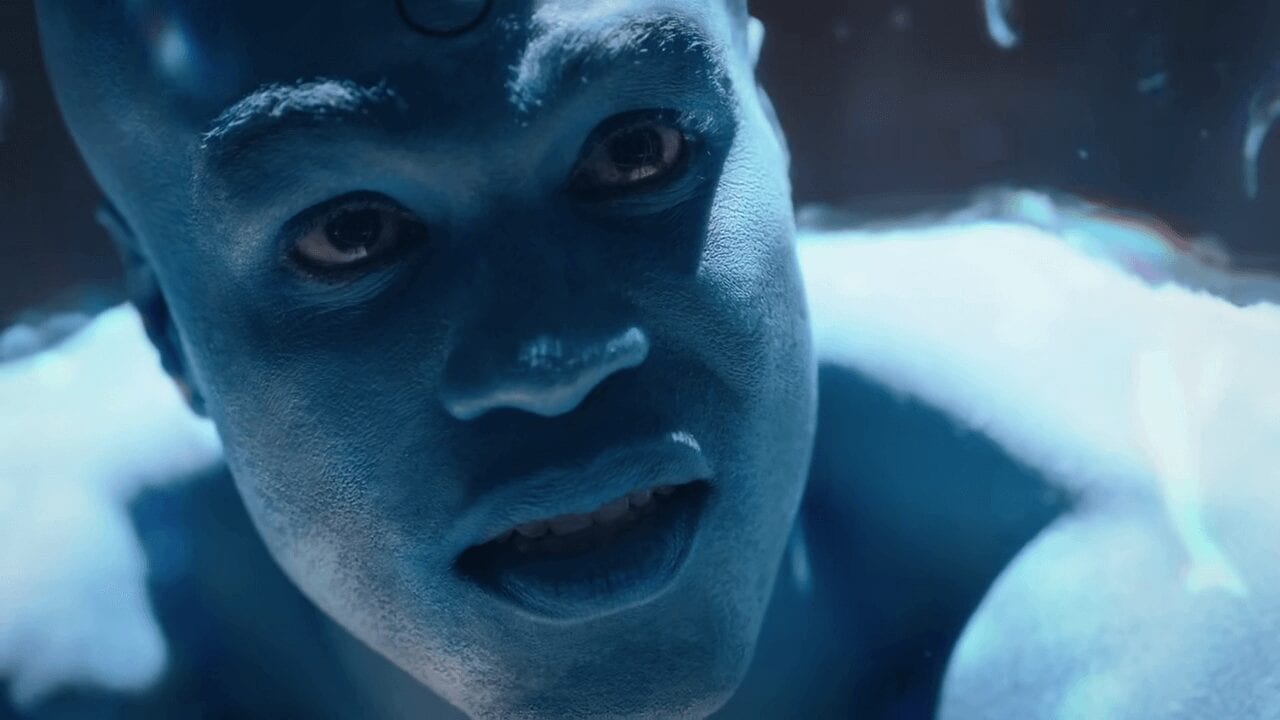REVIEW: Watchmen – Season 1, Episode 9, “See How They Fly”
HBO’s official description of “See How They Fly,” the Watchmen season (series?) finale, highlights one of the larger sticking points with the sequel series: “Everything ends. For real this time.” In trying to carve out a reason for itself to exist, Watchmen the show undermines the original story by negating its events. Adrian Veidt’s victory in Alan Moore’s Watchmen resulted in almost nothing changing, but Damon Lindelof’s Watchmen is playing for all the marbles! As a finale, “See How They Fly” is kind of the perfect encapsulation of the series: a mixed bag, with some truly interesting ideas and characters, some frustrating heavy-handedness, plot points that make little to no sense, and a few bizarre moments of sheer stupidity.
As the Seventh Kavalry prepares to realize their vision, Lady Trieu’s plan is finally revealed. Angela looks for Jon. Laurie tries to find a way out of her captivity. An unlikely hero may be the key to saving the world.
*SPOILERS*
In its opening scene, “See How They Fly” tells us all we’ve been wondering about Lady Trieu, and it’s fairly lazy. She’s Adrian Veidt’s daughter – how this happened is a ridiculous moment that’s played for laughs and, like Laurie’s Doctor Manhattan dildo and Looking Glass watching gay superhero sex on television, makes it next to impossible to take the show seriously – and has inherited his vast intelligence. She also wants to succeed where her father failed, ensuring world peace by taking Doctor Manhattan’s powers and using them to destroy all the world’s nuclear weapons. Essentially, the series is now the comic redux; the villain is another version of Ozymandias who shares his goals and is enacting his plan, albeit through a different methodology. I know, I know, Doctor Manhattan told Veidt “Nothing ever ends” in the comic, but that doesn’t mean they have to have the same events repeat themselves. Why not build on the previous ending instead of declaring it meaningless and doing it again? Why not have Veidt’s and Rorschach’s ideologies contend with each other through their successors instead of turning Rorschach into a symbol of racism and crafting a rerun of Veidt’s scheme? Moreover, the way everything shakes out declares a decisive moral answer to the first ending, where the comic let the reader decide for themselves whether Veidt or Rorschach was right. Productions like this make me understand why Alan Moore is so dead-set against adaptations of his work.
“See How They Fly” also shows the Seventh Kavalry to be nothing but patsies, tools Lady Trieu has been using to deliver her Doctor Manhattan. But why would she do that? Trieu is a trillionaire (commence eye-roll) with untold resources at her disposal; wouldn’t it make much more sense for her to use her own people to get to Doctor Manhattan? Why would she rely on a bunch of third-rate Klansmen to snatch up the most powerful being in the universe? Part of the plan even involves allowing them to steal her technology so they can hold him. This is a useless step, and it’s present only so that Lindeloff could make most of his Watchmen about race. In the end, the whole race angle doesn’t matter, which means it was always superfluous, and yet it was allowed to consume the entire story. It’s also belittling; you can have black main characters in a story that isn’t about their race. And Kavalry leader Senator Keene is even more of a caricature than he had been in “See How They Fly,” bloviating about how President Redford first took away gun rights, then enacted his reparations program. This is despicable; it casts every American who leans anywhere but to the far left as a white supremacist. What’s amusing is, in trying to paint everyone who disagrees with him as pure evil, Lindelof makes the Second Amendment defenders’ point for them; Redford disarmed everyone, then started imposing unjust laws on them because he knew there could be no resistance. (And that’s not even pointing out how the Seventh Kavalry seems to have no problem getting ahold of guns and using them to kill cops to such a degree that the police have to operate in secret.) No matter on which side of the debate you come down, Watchmen handled this ineptly, as it did the entire subject of race.

Also mishandled are the characters from the comic book, whose powers and abilities seem to come and go at the convenience of the plot. Last week, I’d hoped there would be an explanation as to why Doctor Manhattan allowed himself to be captured by the Kavalry. There isn’t. This godlike being with the ability to wipe out an entire army just by thinking about it stood in front of a weapon designed to knock him out and took no precautions to prevent his defeat. I’m not talking about foreknowledge; I understand he experiences all moments in time simultaneously. I mean that he didn’t sense that the ray gun was active and made himself a stationary target, and there was no reason for it. This is unbelievably dumb, and the humanity he later exhibits when wanting Angela around as comfort when he dies is undercut because he’s only in that position due to his own stupidity. Adrian Veidt is similarly inconsistent. Early on, he catches a bullet in much the same way he did in the comic, indicating that his physical abilities haven’t lessened. Towards the end of “See How They Fly,” however, he’s knocked out by Looking Glass, and this happens after Looking Glass and Laurie both announce that they’re going to arrest him. Remember when Rorschach and Nite Owl teamed up to fight him, and he wiped the floor with them both? Well, now the guy who can anticipate any move is susceptible to the equivalent of a sucker punch, despite still being able to catch a bullet in midair. Then there’s Laurie, who several episodes ago missed Doctor Manhattan so much that she called him in those fake phone booths and kept a dildo designed like his penis, but upon seeing him back and about to die has no reaction whatsoever. I know the show is in love with Angela, but you’d think a little care would be given to at least make the originals consistent.
Speaking of Angela, she has little to do in “See How They Fly,” which is surprising. Veidt, Laurie, and Looking Glass are the ones who save the day, while Angela is just kind of present. In the final moments, though, she has a groaner of a scene where she receives Doctor Manhattan’s powers from an egg. I know it was set up, and I know there’s a certain emotional resonance to her having a piece of Jon with her forever now that he’s gone (or there would be if she were a more interesting character), but it feels like a cheap way of making Watchmen more politically correct in the current year. It’s hard to defend yourself from accusations of going woke when you retcon Hooded Justice into a secret black man, transform Doctor Manhattan into a black man, and then make a black woman take his powers – effectively becoming Doctor Manhattan herself – plus make Ozymandias’s daughter a better version of him, all while making Rorschach’s legacy one of racism (which is at no point called a misrepresentation, mind you). I don’t have a problem with all of these things, in particular having Doctor Manhattan trapped in Cal’s body, but when you stack them up, a pattern begins to emerge, and it feels like Watchmen the series exists to diversify the characters from the comic book. I was hoping Angela’s test of her egg theory would end with her flopping into the pool and splashing water all over the place, but such was not to be. Also, isn’t it funny that Angela’s kids don’t seem to care that they just lost their dad?

I think the most disappointing thing about Watchmen, now that they’ve been solidified in “See How They Fly,” is the number of missed opportunities. After setting up the return of Nite Owl, he’s never seen or even mentioned again, save the appearance of the real Archimedes in this episode. Laurie had a stellar introduction to the show, but after that, she didn’t do much of anything. She brought with her the idea of the masked police abusing their authority, but that went nowhere. This is a real shame because that’s a theme much more in keeping with the comic; who watches the watchmen? The cops have been running rampant, trampling over people’s rights, seemingly an authority unto themselves, and Laurie was going to be the one to put a stop to all of that. Then the whole idea was abandoned in favor of focusing on racism and white supremacism. But that fizzled out too because Lady Trieu’s goal resurrected the theme of power corrupting; the race theme disappeared along with the Seventh Kavalry when Trieu vaporized them. If they had jettisoned that and the Kavalry part of the plot entirely, made Laurie the lead, and focused on the corruption of those in power, everything could have fit together nicely; they could have even done something with Veidt in that instance. It still would have been a retread of the comic, but at least it would have been more interesting. That’s what happens when you care more about agenda than story.
There are things I like about “See How They Fly.” Most of the acting is excellent, including from people who have been fairly lousy so far. Jeremy Irons, free of the silliness of the imprisoned and unhinged version of his character, captures Adrian Veidt’s hubris and humanity perfectly, and it’s a shame he wasn’t able to play a proper Ozymandias for the entirety of the show. Hong Chau is also very good as Lady Trieu, allowed to play her character straight instead of making her a joke, like Irons. Jean Smart is still the MVP as Laurie, and her delivery of Laurie’s barbs is perfect. Tim Blake Nelson finally makes his return, and his horror at the conduct of the Kavalry, Trieu, and Veidt is palpable, as is his helplessness in the face of overwhelming odds when trying to keep Laurie safe. Yahya Abdul-Mateen II draws out Doctor Manhattan’s vulnerability as a god experiencing what it’s like to die. Regina King is still dull as Angela, but considering how good the rest of the cast is when they’ve actually got something to work with, it’s likely not her fault. The idea of a person turning themselves into a god with the best of intentions is fascinating too, as is the inevitability of their corruption; if Watchmen had introduced this idea earlier and allowed it to be explored more, it could have raised some important questions about the nature of power and how best to bestow it (but “mystery box,” amirite?). I also like Veidt’s plan to stop Trieu; it’s a neat idea, it pays off the rain of squid, and it’s appropriately violent. I wish they’d followed through on the cost in lives, though. How did Red Scare and Pirate Jenny survive the ice squid? It looked like they had some kind of force field around them because the rain hit everything but them, and rain doesn’t work like that. The special effects and sets are great too; Adrian Veidt’s old lair looks cool, and the big device that would give Trieu Doctor Manhattan’s powers is imposing and eerie in its relative simplicity.
“See How They Fly” brings the season’s main stories to a close, but not a particularly satisfying one. The characters are inconsistent, the themes don’t gel with each other, and too many elements don’t make sense. However, the acting is good, and some of the plot elements and themes are fun and interesting, or could have been, anyway. Ultimately, Watchmen is a cautionary tale about sacrificing story for wokeness; they were almost onto something, but they couldn’t resist lecturing us about race, and now we’re left with a confused mess.
Watchmen – "See How They Fly"
Plot - 6.3
Acting - 8.7
Progression - 8.9
Production Design - 8.6
Themes - 5.4
7.6
Good
“See How They Fly” brings the season’s main stories to a close, but not a particularly satisfying one. The characters are inconsistent, the themes don’t gel with each other, and too many elements don’t make sense. However, the acting is good, and some of the plot elements and themes are fun and interesting, or could have been, anyway.







